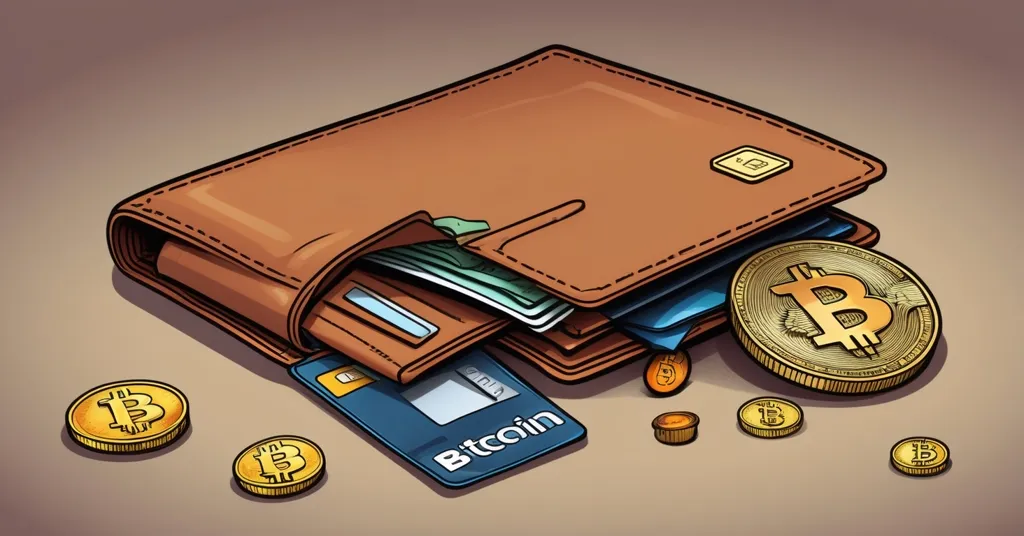Jack Dorsey Warns: Bitcoin Risks Irrelevance Without Daily Use

Jack Dorsey Warns Bitcoin Risks Irrelevance Without Everyday Use
Jack Dorsey, the influential co-founder of Twitter and CEO of Block, Inc., recently voiced his concerns about Bitcoin’s future trajectory. Amid a global economic downturn sparked by a trade dispute initiated by former U.S. President Donald Trump, Dorsey cautioned that Bitcoin’s role as merely “digital gold” could lead to its downfall. He advocates for Bitcoin to be utilized as a daily payment tool, fueling a heated debate over its primary purpose and relevance in today’s financial ecosystem.
- Dorsey fears Bitcoin’s failure if used only as “digital gold.”
- Advocates for Bitcoin’s use in everyday payments.
- Bitcoin reached $100,000 in 2024 amidst global economic turmoil.
- Debate continues on Bitcoin’s primary function: store of value vs. payment system.
Dorsey’s Vision for Bitcoin
On the Presidio Bitcoin podcast, hosted by Haley Berkoe from Block’s Spiral, Dorsey expressed his views candidly. “I think it fails through irrelevance,” he asserted. “It fails to be relevant to people on a daily basis. If it just ends up being sort of value and nothing more, I don’t think it gains relevance at all.” For Dorsey, Bitcoin’s true potential lies in its ability to facilitate everyday transactions, not just sit in digital vaults.
This perspective directly challenges the narrative of Bitcoin as a safe-haven asset akin to gold. Despite Bitcoin’s impressive milestone of breaking the $100,000 barrier in 2024, Dorsey remains skeptical. He pushes for its adoption as a regular payment gateway, even amid the economic chaos caused by Trump’s trade dispute.
Community Responses
The online community’s response, particularly on X (formerly Twitter), has been mixed. Many users argue that Bitcoin’s value as digital gold is enough to secure its place in the financial world. They contend that it doesn’t need to evolve into a daily payment tool to maintain relevance. This clash of opinions underscores a broader tension within the cryptocurrency community regarding Bitcoin’s role and future.
Bitcoin maximalists, who believe that Bitcoin is the only cryptocurrency worth considering, often scoff at the idea of using it for everyday purchases. They argue that its true value stems from its scarcity and potential to hedge against inflation. However, Dorsey’s vision aligns with Bitcoin’s original purpose as a peer-to-peer transaction system, championing the principles of decentralization and financial freedom that are at the heart of the crypto movement.
Challenges and Opportunities
Despite the idealism, Bitcoin’s path to becoming an everyday payment tool is fraught with challenges. Transaction fees, volatility, and the time required for transaction confirmations are significant hurdles that need addressing. Meanwhile, altcoins like Ethereum and Monero are stepping up to fill different niches. Ethereum, with its smart contract capabilities, and Monero, focused on privacy, offer functionalities that Bitcoin might not efficiently provide.
In the realm of everyday payments, the potential integration of Bitcoin into platforms like Signal, as suggested by Dorsey, could pave the way for broader adoption. However, Signal’s current payment system, Sentz (formerly MobileCoin), has faced criticism for its lack of transparency, highlighting the potential benefits of a more decentralized and transparent solution like Bitcoin.
Implications of Bitcoin’s $100,000 Milestone
The achievement of Bitcoin reaching $100,000 in 2024 is significant, symbolizing its growing acceptance and potential impact. However, this milestone also raises questions about its practical utility. If Bitcoin is to be a daily payment tool, as Dorsey suggests, its value cannot simply be measured in its price swings, which can be as unpredictable as a rollercoaster ride.
The Global Market Crash Context
The global market crash triggered by Trump’s trade dispute adds another layer of complexity. As supply chains and small businesses struggle with the disruptions caused by these tariffs, the need for a stable and accessible financial system becomes increasingly apparent. Dorsey’s call for Bitcoin to be a tool for everyday transactions during such turbulent times underscores its potential to disrupt traditional financial systems and offer an alternative, decentralized solution.
Future Outlook
Looking ahead, several factors could influence Bitcoin’s adoption as a payment tool. Technological advancements aimed at reducing transaction fees and confirmation times, along with regulatory changes that foster a more crypto-friendly environment, could play crucial roles. The industry’s continued push for integration into everyday platforms, as seen in Dorsey’s advocacy for Signal to adopt Bitcoin, might also drive a shift towards using it for regular transactions.
Key Takeaways and Questions
- What is Jack Dorsey’s primary concern about Bitcoin?
Dorsey’s main concern is that Bitcoin will fail if it does not become relevant in daily transactions, rather than just being used as a store of value.
- How did Jack Dorsey suggest Bitcoin should be used to remain relevant?
Dorsey suggested that Bitcoin should be used for everyday payments to maintain its relevance, as opposed to being merely held as an investment or emergency asset.
- What event coincided with Dorsey’s comments about Bitcoin?
Dorsey’s comments were made during a global market crash triggered by a trade dispute initiated by U.S. President Donald Trump.
- Is there a consensus on Bitcoin’s primary function among its users?
No, there is no consensus. While Jack Dorsey emphasizes Bitcoin’s role as a payment tool, many users on X believe its value as digital gold is sufficient for its success.
- What was the price milestone mentioned for Bitcoin in 2024?
Bitcoin broke the $100,000 barrier in 2024, though this claim requires further validation.
I think it fails through irrelevance. It fails to be relevant to people on a daily basis. If it just ends up being sort of value and nothing more, I don’t think it gains relevance at all.
I think it has to be payments for it to be relevant every day. Otherwise, it’s just something you kind of buy and forget and only use in emergency situations or when you want to get liquid again. So I think if it doesn’t transition to payments and find that everyday use case, it just gets increasingly irrelevant. And that’s failure to me.



